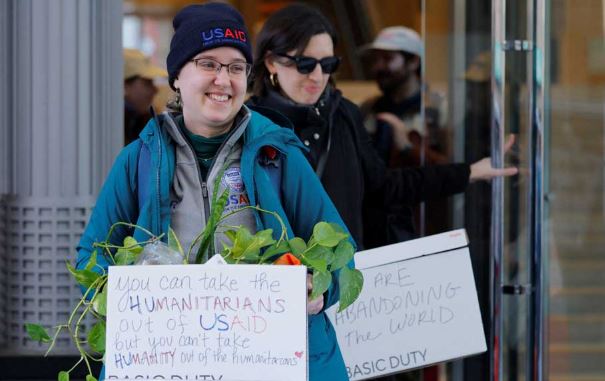In a move that has sent ripples through the foreign aid community, the Trump administration has announced plans to lay off 1,600 employees at the U.S. Agency for International Development (USAID).
This decision impacts staff members working in the U.S., while those deemed essential or in senior roles will retain their positions.
The move comes as part of a broader initiative driven by Elon Musk’s Department of Government Efficiency.
The goal is to reduce the scope of U.S. foreign assistance, which has long been seen as an important tool of "soft diplomacy" for the country.
USAID, the agency responsible for delivering U.S. assistance worldwide, has been at the center of these changes.
In an email sent to one employee, the agency delivered the news bluntly: “We regret to inform you that you are included in the reduction of staff,” the message said.
Reuters confirmed the authenticity of the email. For those affected, their job cuts will take effect on April 24.
The decision has sparked criticism from several quarters. According to reports from USAID, the agency’s website indicated that apart from essential staff, all other direct hires would be placed on paid administrative leave.
A previous communication from the agency had suggested the possibility of laying off up to 2,000 staff members.
While USAID staff was informed about the layoffs, the White House has not yet responded to inquiries for comments.
Unions representing government employees have strongly objected to the move.
They filed lawsuits, arguing that this is part of a larger plan to dismantle the agency altogether.
But on Friday, a federal judge cleared the path for the Trump administration’s plan to go ahead, removing the legal barrier to the layoffs.
Some former senior USAID officials have raised alarms over this decision. Marcia Ong, one such official, shared her concerns: "This administration and Secretary of State (Marco) Rubio are undermining the ability of the U.S. to efficiently address global crises. When diseases emerge and people are displaced, it is these USAID experts who are first on the ground to stabilize the situation and deliver aid."
This drastic change in policy follows President Trump’s decision shortly after his inauguration for a second term on January 20.
He imposed a 90-day freeze on nearly all foreign aid programs, bringing vital initiatives such as hunger relief, disease control, and refugee support to a standstill.
The freeze allowed $5.3 billion of U.S. foreign aid to continue, but most of this funding went to security and anti-drug programs, with other crucial projects being put on hold.
Before the freeze, USAID was able to allocate nearly $40 billion annually, but now, with the changes, less than $100 million is available for its operations.




-20260226080139.webp)



-20260223082704.webp)










-20260225072312.webp)










-20260219054530.webp)
-20260224075258.webp)





-20260221022827.webp)